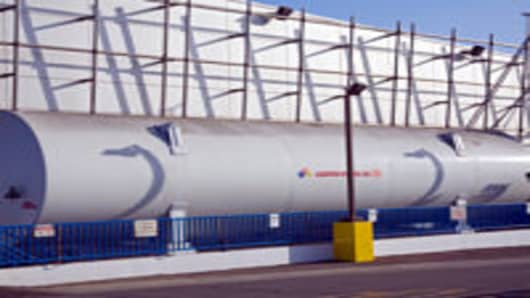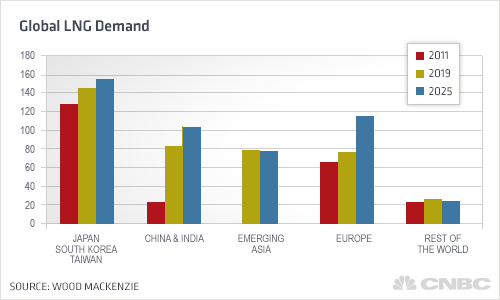Heated debate over the impact of liquefied natural gas exports on domestic prices is threatening to derail them at a crucial time for the U.S. industry.
A sudden abundance of natural gas and unprofitably low prices — the result of fracking technology that's opened up previously unreachable shale-gas reserves — has the industry looking for new markets.
But Massachusetts Rep. Edward Markey, a top Democrat on the House Natural Resources Committee, is pulling out the stops to slow exports.
He began worrying about the impact of liquefied natural gas (LNG) exports on U.S. prices, when he saw permit applications piling up at the Department of Energy.
So, Markey and Sen. Ron Wyden, D-Ore., another key voice on U.S. energy policy, introduced bills requesting a timeout on LNG permit approvals until 2025.
“We saw a policy shift to exports without even a debate,” says Jonathan Phillips, a senior policy adviser to Markey on the Democratic staff of the Natural Resources Committee. “Yet all the studies show that exports will increase domestic prices. We’re not going to race ahead, allowing oil and gas companies to reap large profits at a cost to consumers."
Consumer and environmental groups are also dead-set against the export of LNG, which converts natural gas into liquid form through a rapid chilling process for easier transport. The chemical industry has voiced dissent because it depends on cheap natural gas to produce fertilizers and feed stock.
This domestic push-back is slowing the approval process, while other countries are ramping up production to natural gas-hungry customers like Japan, which is trying to compensate for the loss of the Fukushima nuclear power plant in 2011.



